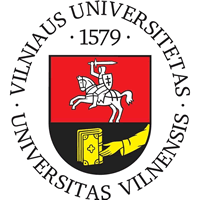DNA motors are protein machines that use energy from ATP hydrolysis to move along DNA. They perform a variety of functions each of which is essential to service DNA and maintain its integrity. Helicases, for example, unwind DNA duplex during DNA replication. They move on a single DNA strand and use a hedge-like domain to separate two DNA strands. Conversely, DNA translocases with helicase-like domains move on both strands of DNA and do not unwind it. Often they act as DNA remodelers or cleave DNA. DNA motors are found in all organisms, from viruses to eukaryotes, emphasizing the importance of this class of proteins. Revealing how they work is of paramount importance to understanding protein-DNA interactions and force generation at a molecular level. Also, it is not fully understood how DNA motors solve a number of challenges during their action. Various proteins might be bound to DNA and act as roadblocks, including other DNA motors and histones. Furthermore, they must overcome DNA supercoiling and various DNA structures, like cruciforms and G-quadruplexes.
Investigation of how DNA motors work is the key theme of this PhD project. Various DNA motors from different prokaryotic defense systems (eg. clustered regularly interspaced short palindromic repeats (CRISPR) and restriction-modification (RM)) will be studied as model systems. A number of biochemical and biophysical approaches will be employed to address that. That includes, but is not limited to, single-molecule studies like magnetic and optical tweezers and single-molecule fluorescence, AFM, nanopores, mutagenesis, traditional in-bulk biochemistry assays, etc. During this project, we will try to combine different techniques to push the boundaries of current resolution. The candidate will have a chance to contribute to development of custom instrumentation and programming.
The ideal candidate would have interest in engineering (electronics, prototyping, 3D printing etc), physics or similar and would like to use that for building new instrumentation to address important biological questions.
The student would be co-supervised by Dr Algirdas Toleikis and Dr Marijonas Tutkus.
The PhD student will also be able to attend EMBO workshops, conferences and courses since the laboratory is a part of the EMBO Young Investigator Network.
Application procedure
Interested candidates should contact the supervisor (Algirdas Toleikis, [Email Address Removed]) with a CV, and motivation letter expressing interest in the project explaining why they would be a good fit.
General information about the institute: https://www.gmc.vu.lt/en

 Continue with Facebook
Continue with Facebook



